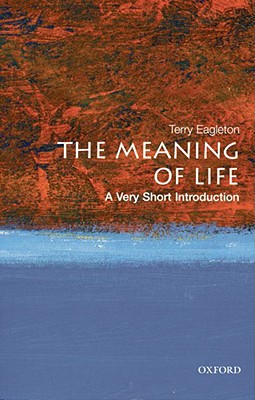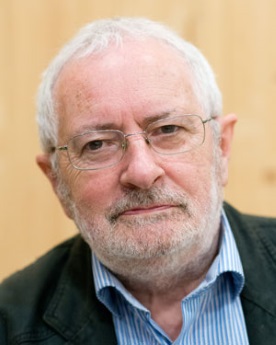

 Oxford University Press, USA
Oxford University Press, USA
The Meaning of Life: A Very Short Introduction


Key Metrics
- Terry Eagleton
- Oxford University Press, USA
- Paperback
- 9780199532179
- 6.87 X 4.44 X 0.3 inches
- 0.25 pounds
- Philosophy > Religious
- English
 Secure Transaction
Secure TransactionBook Description
Eagleton first examines how centuries of thinkers and writers--from Marx and Schopenhauer to Shakespeare, Sartre, and Beckett--have responded to the ultimate question of meaning. He suggests, however, that it is only in modern times that the question has become problematic. But instead of tackling it head-on, many of us cope with the feelings of meaninglessness in our lives by filling them with everything from football to sex, Kabbala, Scientology, New Age softheadedness, or fundamentalism. On the other hand, Eagleton notes, many educated people believe that life is an evolutionary accident that has no intrinsic meaning. If our lives have meaning, it is something with which we manage to invest them, not something with which they come ready made. Eagleton probes this view of meaning as a kind of private enterprise, and concludes that it fails to holds up. He argues instead that the meaning of life is not a solution to a problem, but a matter of living in a certain way. It is not metaphysical but ethical. It is not something separate from life, but what makes it worth living--that is, a certain quality, depth, abundance and intensity of life.
Here then is a brilliant discussion of the problem of meaning by a leading thinker, who writes with a light and often irreverent touch, but with a very serious end in mind.
About the Series: Combining authority with wit, accessibility, and style, Very Short Introductions offer an introduction to some of life's most interesting topics. Written by experts for the newcomer, they demonstrate the finest contemporary thinking about the central problems and issues in hundreds of key topics, from philosophy to Freud, quantum theory to Islam.
Author Bio
Terry Eagleton, the internationally celebrated literary scholar and cultural theorist, is Distinguished Professor of English Literature within the Department of English and Creative Writing. Professor Eagleton’s post at Lancaster includes giving both public and undergraduate lectures, offering open MA seminars, and giving specialist PhD tutorials. For full details, please see our events page.
Professor Eagleton, who has written around fifty books and is himself the subject of at least two monographs, is one of the world’s leading literary critics and, according to The Independent, ‘the man who succeeded F. R. Leavis as Britain's most influential academic critic.’ Prior to his move to Lancaster in 2008 Professor Eagleton was John Edward Taylor Professor of English Literature at the University of Manchester (2001-2008) and before that Thomas Warton Professor of English Literature at the University of Oxford (1992-2001). Professor Eagleton is a Fellow of both the British Academy and the English Association, and has held visiting appointments at such universities as Cornell, Duke, Iowa, Melbourne, Notre Dame, Trinity College Dublin, and Yale.
Eagleton obtained his PhD at Cambridge where he was a student of the famous left-wing literary critic Raymond Williams. He then became a Fellow of Jesus College, Cambridge, the youngest fellow since the eighteenth century, before moving to Wadham College, Oxford in 1968. At this early point in his career Eagleton was a Victorianist but he was always drawn to write on a wide range of periods – among his first books were Shakespeare and Society (1967) and Exiles and Emigrés: Studies in Modern Literature (1970). It was, though, his more theoretical work as a Marxist critic, in such books as Criticism and Ideology (1976), which really established him as a leading figure within literary studies.
In the 1980s, Eagleton engaged extensively with the various tides of continental thought that were impacting upon English Literature and he did so most famously in his book Literary Theory (1983) which remains to this day an academic best-seller. Eagleton’s specifically Marxist take on literary theory is evident throughout this book and clearly informs his continuing work on ideology, most famously The Ideology of the Aesthetic (1990), and his critique of the postmodern turn in cultural theory, witness The Illusions of Postmodernism (1996), and indeed his more recent work - see Why Marx Was Right (2011).
Alongside his theoretical and critical work, Eagleton was, at this time, also developing a creative dimension to his work; this led to the well-reviewed novel Saints and Scholars (1987), several widely-performed plays such as Saint Oscar (1989), the screen-play for Derek Jarman’s film Wittgenstein (1993), and indeed a best-selling memoir, The Gatekeeper (2001). Well to the fore in much of this creative work is Eagleton’s Irish ancestry and his keen interest in the political history of Ireland, an interest which is also evident in such critical work as Heathcliff and the Great Hunger (1995) and Crazy John and the Bishop (1998).
Eagleton’s Irishness connects with a Catholicism which is evident not only in very early books like The New Left Church (1966) but also such recent works as Sweet Violence (2003), Holy Terror (2005), and Trouble with Strangers (2008). These books have played a part in Eagleton’s development as a public intellectual, a role he takes on, for example, in The Meaning of Life (2007), a series of lectures delivered at Yale University in 2008 since published as Reason, Faith, and Revolution, and indeed his 2013 book,Across the Pond: An Englishman's View of America.
He remains, however, more than ever concerned with the meaning of literature, and even (if you will) the words on the page – hence, The English Novel (2004), How to Read a Poem (2008), and The Event of Literature (2012).
Source: Lancaster University
Photo Credit: Ben Evans
Videos
No Videos
Community reviews
Write a ReviewNo Community reviews